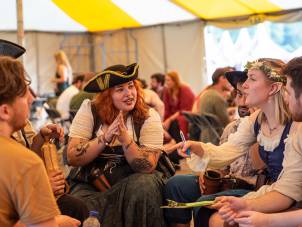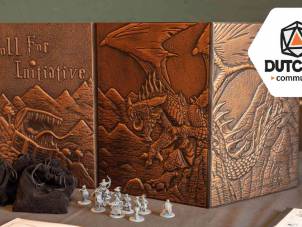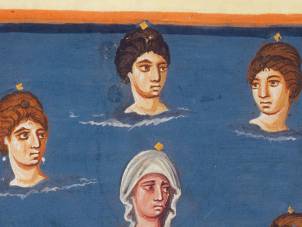Experience the Middle Ages like never before. In this panel, we dive into the world of 15th century Bohemia through the popular game Kingdom Come: Deliverance. Earlier this year, the long-awaited second instalment of the game was released. In collaboration with Gamekings, experts from the gaming industry and academia come together to discuss how historical narratives can be translated into an immersive gaming experience. How do you bring 15th century Bohemia to life within a game world? What compromises must be made between historical accuracy and gameplay? And how do you create a digital world that is both believable and engaging?
Tobias Stolz-Zwilling, Communications Director at Warhorse Studios, the studio behind the game, joins seasoned role-playing gamers and Gamekings presenters Daan and Jelle, along with medieval historian Jan van Doren, in an open conversation.
Expect an engaging meeting of minds from three distinct perspectives: the game developer with a deep niche passion, the gamer who revels in sword-and-shield adventures, and the historian who offers insights that go beyond mere entertainment. Ask your own questions, listen to lively discussions, personal insights and anecdotes – and maybe even hear a few exclusive revelations you won’t find anywhere else. Whether you’re a seasoned gamer or a history enthusiast curious about how the Middle Ages are authentically recreated in modern entertainment, this is the place for a deep dive into the highly anticipated follow-up to one of the most beloved historical games ever made.
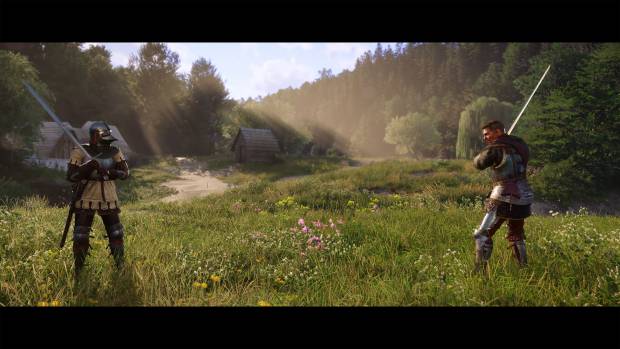
Kingdom Come: Deliverance (I & II)
Warhorse Studios is a video game developer founded in 2011 by a group of veterans from the Czech gaming industry. Their debut title, Kingdom Come: Deliverance, a gritty medieval RPG set in a historically accurate world, was released on 13 February 2018 and was met with widespread acclaim from critics and players alike. In February 2025, the eagerly awaited sequel was released.
Kingdom Come: Deliverance is a narrative-driven open-world RPG that immerses you in a raw medieval adventure in Bohemia. The kingdom is plunged into dark times: war, corruption, and division threaten to tear the region apart.
You experience the story through the eyes of Henry, whose life is destroyed at the beginning of the first game during a mercenary raid. Henry must search for a new home and a new future, as fate draws him into the struggle for Bohemia’s destiny. Through Henry, Kingdom Come: Deliverance offers the ultimate medieval adventure – an epic journey of personal and political upheaval.

Tobias Stolz-Zwilling
Since 2014, Tobias has worked at Warhorse Studios, where he now serves as Communications Director. He began his career as a journalist and became neighbours by chance with Daniel Vávra, Creative Director of Kingdom Come: Deliverance. What began as a chance meeting in Prague turned into a defining role as the public face and voice of Warhorse Studios worldwide. Last year, Tobias met the Gamekings crew in Kuttenberg (modern-day Kutná Hora), the setting of the sequel. There, they couldn’t stop talking about how Warhorse Studios managed to craft a game that’s both historically authentic and incredibly entertaining. Where does the studio’s passion come from to create a game set in this specific historical period?
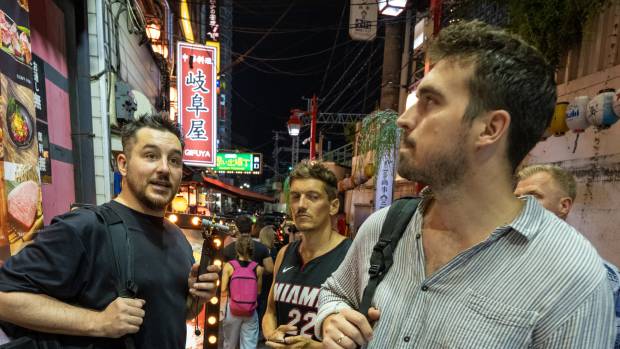
Daan and Jelle from Gamekings
Both Daan and Jelle are huge fans of the game. For months, they "lived" in the immersive world around Kuttenberg, occasionally stepping out of reality and truly feeling as though they were back in the Middle Ages. Normally, they’re known for their outspoken commentary on the Netherlands’ most no-nonsense gaming platform, but here, they take a seat alongside two other experts, eager to let them do the talking on a subject that has become a newfound passion: the medieval world.

Jan van Doren
As a medievalist affiliated with Radboud University Nijmegen, Jan focuses on the history of medieval Europe. While the other speakers may approach aspects of the game with a love of entertainment, Jan provides historical context and insight into what life was really like some 600 years ago. How realistic is the game? What stands out to a historian (who has played the game himself)? And does he have extra details that might serve as tips for a potential third instalment?

